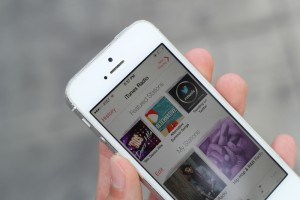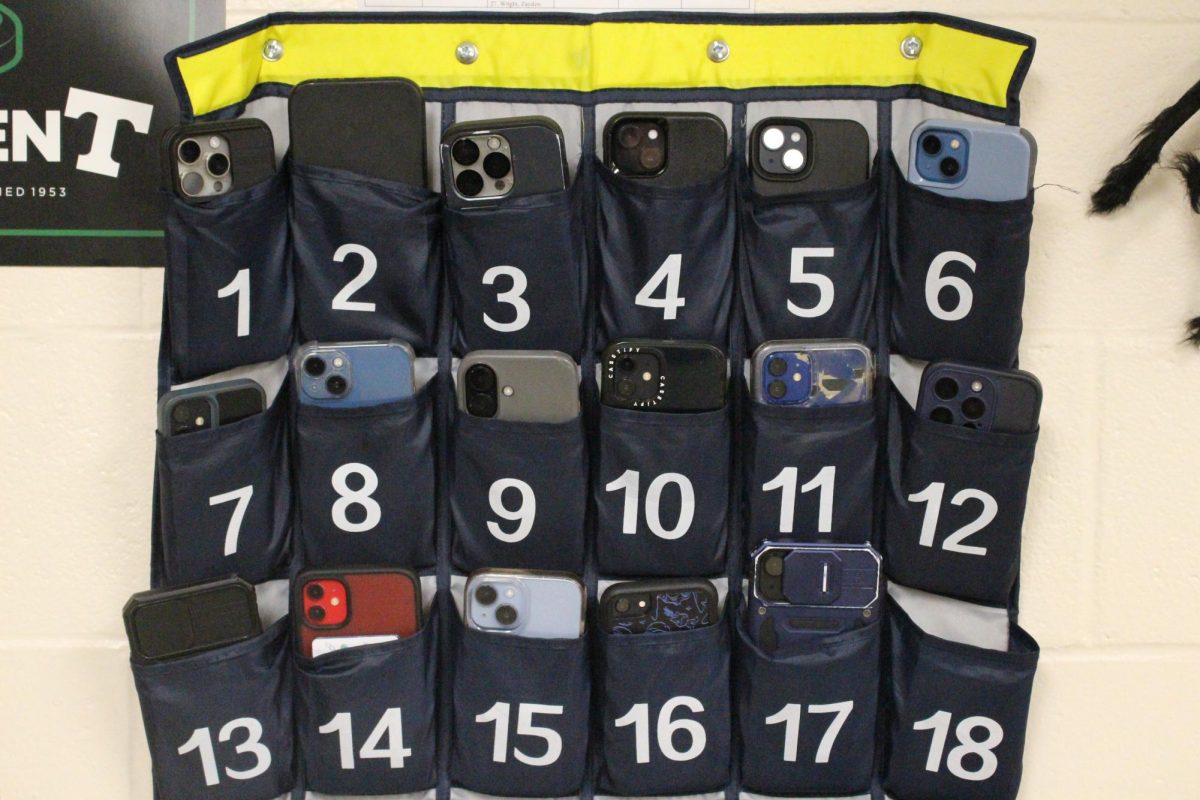
Music has always been a way for people to express themselves, but with the spread of the Internet and subsequent music streaming technologies, consumption among teenagers has taken a turn.
The shift is believed to have started with the launch of Apple’s iPod in 2001.
“Apple created a culture for the iPod where every teenager just ‘wanted to have it,'” Mark Gurman, senior editor at Apple-focused publication 9to5mac, said. “They loved it. It was easier and more accessible to get music. As the hit gadget of the 2000s, people’s friends saw them and all jumped on the bandwagon.”
No longer are teenagers taking a stroll to their local record store. Following Apple’s lead with iTunes and the iPod, Pandora, Spotify, Last.fm, Microsoft’s Xbox Music, Google’s Play Music, Google-owned YouTube, and a slew of other services have sprung up to give customers their music fix.
Unlike past generations, today’s students browse a digital catalogue rather than store shelves.
“Spotify has a whole selection of tracks,” Trinity High School senior Kyle Quinn said. “You can choose whatever type of music you feel like from your phone or laptop. It’s more convenient to be able to stream music live, as opposed to downloading it. Having unlimited skips on the radio feature is cool.”
Swedish-based Spotify is a music streaming service carrying record labels from Sony, EMI, Warner Music Group, and Universal — covering most of the singles and albums a user may desire. To be a serious player in the space, companies address the necessity of licensing a full catalogue of music.
Record labels have realized the potential of the Internet and are quick to license their music to drive sales. For example, iTunes and its platform are expected to generate $13 billion in revenue in 2013, according to Global Equities Research. Apple and other companies are capitalizing on the digital draw of this generation.
Quinn said he is willing to pay $10 per month for Spotify, because of its ease of access. Users don’t have to pay for individual songs unlike iTunes; they simply stream what they want to listen to.
Mr. Rob Seng, who teaches a history of rock ‘n’ roll class at Trinity, thinks services like Spotify have changed some of the focus of music.
Seng said, “Teenagers today have a wide access to music and radio stations to cater to their tastes. It used to be word of mouth and mixed tapes from friends. The main shift I see is while people bought singles, it was more of an album thing. You listened to the whole albums. Teenagers now reference singles and not albums.”
Seng, an avid music enthusiast who expressed his desire to support artists, wouldn’t shy away from Spotify, however. “I don’t have the money like I did when I was younger,” he said. “Spotify is great because I can sample before I buy. I still support artists if I can.”
Spotify-competitor Pandora focuses on serving users with new music, rather than letting them pick. It calls itself the “Internet Radio,” playing relevant songs to a user’s selection of a song, artist, or album. Like traditional radio, users can’t choose exactly what they listen to — the radio serves up what it thinks is best. It can expose users to songs they may have never heard before.
“Sometimes I listen to Pandora because I don’t really know what I want in my music,” St. Xavier High School senior Matthew Ogburn said.
YouTube, Xbox Music, and other services provide similar ways for users to access music. They can access single songs while also seeing ads, purchase songs individually, or pay for a subscription plan.
“I get music from YouTube on my laptop and then to my phone,” Trinity senior Jessee Lynch said. “While driving, I really like to listen to music of the mood I feel. For instance, after a date with my lady, I love listening to ‘With You’ by Chris Brown because it really makes me feel warm inside.”
With the draw of the Internet taking over music, retail stores who specialize in music sales have noticed a difference.
“We sell a lot of CDs and movies; however, we don’t make a lot of profit off them,” said Trinity senior Tyler Harris, an employee at retailer FYE. “Our majority of profit comes from merchandise. Sales are okay at best, but there’s definitely a decline in recent years–at least that’s what managers say.”
While Seng says “there’s something about handing someone a cassette,” teenagers in the Internet age are realizing this can now be achieved through online playlists.
Kevin O’Neil, a sales clerk at Better Days Records in Louisville, said the company he works for didn’t fear the digital shift and still opened up a shop in the midst of it.
“We’ve been open for two years,” he said. “We were already well in the digital situation when the store started. I really can’t say it changed sales because it’s the way it was when we first opened.”
O’Neil agrees with Harris that a retailer has to look past new music sales for revenue.
“We sell used stuff as well as new stuff, and there’s a higher profit margin on used stuff that lets us subsidize carrying new stuff too,” O’Neil said.
Harris said he still doesn’t mind supporting an artist with a retail purchase. “If you want to support the artist,” he said, “I still dig the artists that don’t go on iTunes. There’s something more authentic about owning a copy of a CD or record, rather than just downloading it.”
In one of his classes, Seng tested a turntable versus an album-listening experience. Students put their heads down on the desk and listened to the same song played on both formats.
He said, “We did a survey among the class and found 80 percent of the class preferred vinyl.”
Even with music consumption changing, the underlying purpose of music has not.
“If I’ve had a bad day I’ll go home and pull out an old favorite and listen to it,” Seng said. “You can listen to music in isolation, but music can bring people together.”
Quinn agrees with Seng. The teenager said he and his friends find music especially useful for car rides or hanging out.
“Music passes time and allows you to reflect on certain things,” Quinn said. “It puts me in a better mood. When we have a group of friends together and music is playing, everyone is relaxed, and it eases the mood and makes people comfortable. It breaks the awkward silence if no one is talking.”








Susan Lococo • Oct 15, 2013 at 1:14 pm
Awesome job, Jake!! You really know technology and I’m glad you’re sharing your knowledge with us!
Austin Horvat • Oct 7, 2013 at 2:29 pm
Thanks for the information Jake! I’m curious as to what I could do to enhance the processing speed on my Iphone 2. Is it possible to install IOS7.2 on an Iphone 2? Thanks!
-Austin
Michael Lindenberger • Sep 18, 2013 at 9:07 pm
Jake: Here I am 90 minutes away from a daily deadline of my own and I found myself taken in by your story. Great sourcing and a topic of obvious relevance. Plus, you’re a good writer. Nice work.
Rob Seng • Sep 18, 2013 at 2:31 am
Great job on this Jake. Very impressed with the variety of sources you got!
Jake Smith • Sep 18, 2013 at 2:33 am
Thank you! I appreciate you taking the time to talk to us.